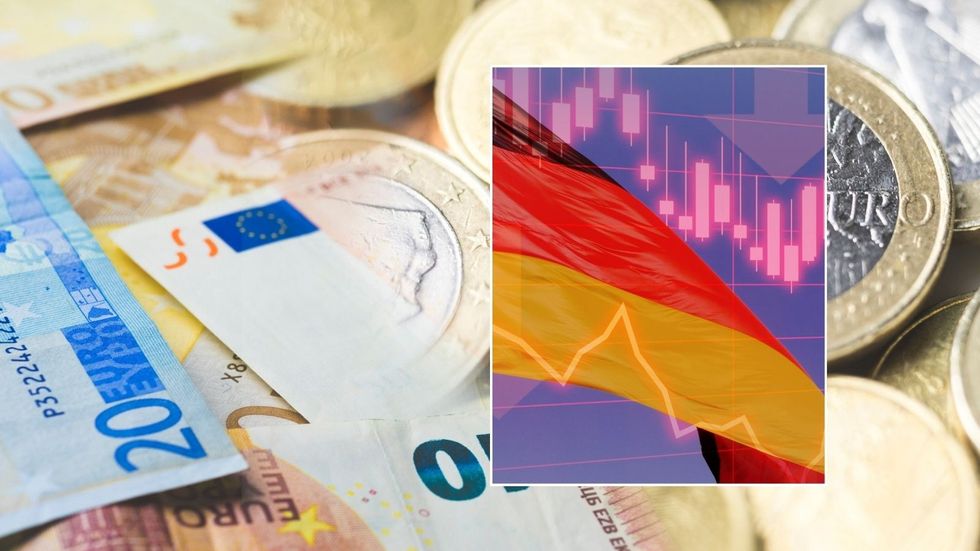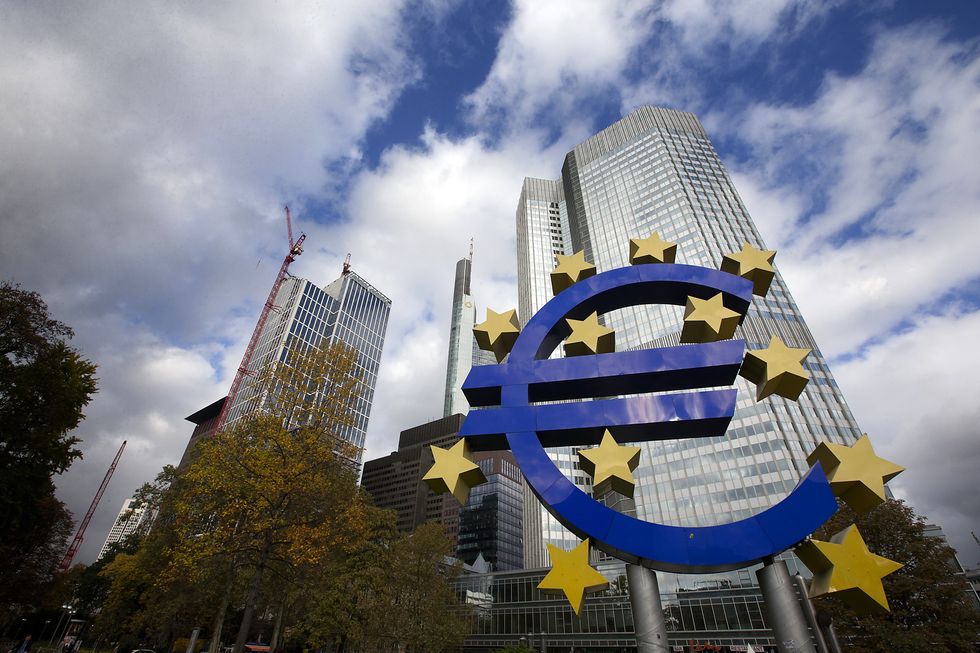Eurozone unexpectedly escapes recession but Germany sees economy shrink

European economies are trying to avoid a recession following the pandemic as the trading bloc contends with higher interest rates
Don't Miss
Most Read
Latest
The eurozone unexpectedly narrowly avoided a recession towards the end of 2023 despite Germany’s economy sleepwalking into an economic downturn. Gross domestic product (GDP) was stagnant in the fourth quarter of last year for the trading bloc but this was better than previous forecasts of a 0.1 per decline over the period.
All 20 countries in the eurozone have been saddled with hiked interest rates amid the battle against inflation following the pandemic. The trading bloc escaped recession thanks to stronger growth than expected in Italy and Spain which offset the “Sick Man of Europe” Germany.
Do you have a money story you’d like to share? Get in touch by emailing money@gbnews.uk.

The Eurozone has avoided recession but Germany's economy is at risk
|GETTY
A recession is defined as happening when a country or trading bloc experiences two consecutive quarters of negative growth in the economy.
While the eurozone has avoided this so far in the Great Recession, hiked interest rates and insubstantial foreign demand has meant there has been risk of a recession taking place.
Despite this respite, survey data remains weak for the beginning of the year as Germany continues on its path to an economic downturn.
The region’s biggest economy shrank by 0.3 per cent in the final three months of 2023, according to Eurostat, the EU’s statistical agency.
However, economists believe these latest figures for the trading bloc as a whole suggest the European Central Bank’s (ECB) plan of a soft landing is coming to fruition.
At last week’s ECB policy meeting, President Christine Lagarde said she expected fourth-quarter GDP to stagnate.
However, concerns remain over how Germany’s economy will recover due to it risking the trading bloc’s growth going forward.
In the 90s, Germany was referred to as the “Sick Man of Europe” due to numerous challenges it faced, including a stagnant job market and the reunification between East and West Germany.
LATEST DEVELOPMENTS:

The Eurozone's GDP remains stagnant
| PAAccording to forecasts from the ifo Institute, GDP is likely to fall by 0.2 per cent between January and March for the country.
Business surveys for the start of the year have warned that sentiment has worsened slightly already among consumers.
This is because foreign demand in German goods and services shows no signs of rebounding, while consumers are still hesitant to spend money.
Speaking to Bloomberg, economist Martin Ademmer explained: “The deterioration in business sentiment at the beginning of the year suggests that Finance Minister Christian Lindner’s assessment of Germany as a tired but not sick man might prove overly optimistic.
“Moreover, sickness – in the literal sense – likely contributed to the economy’s weakness in past quarters.”











